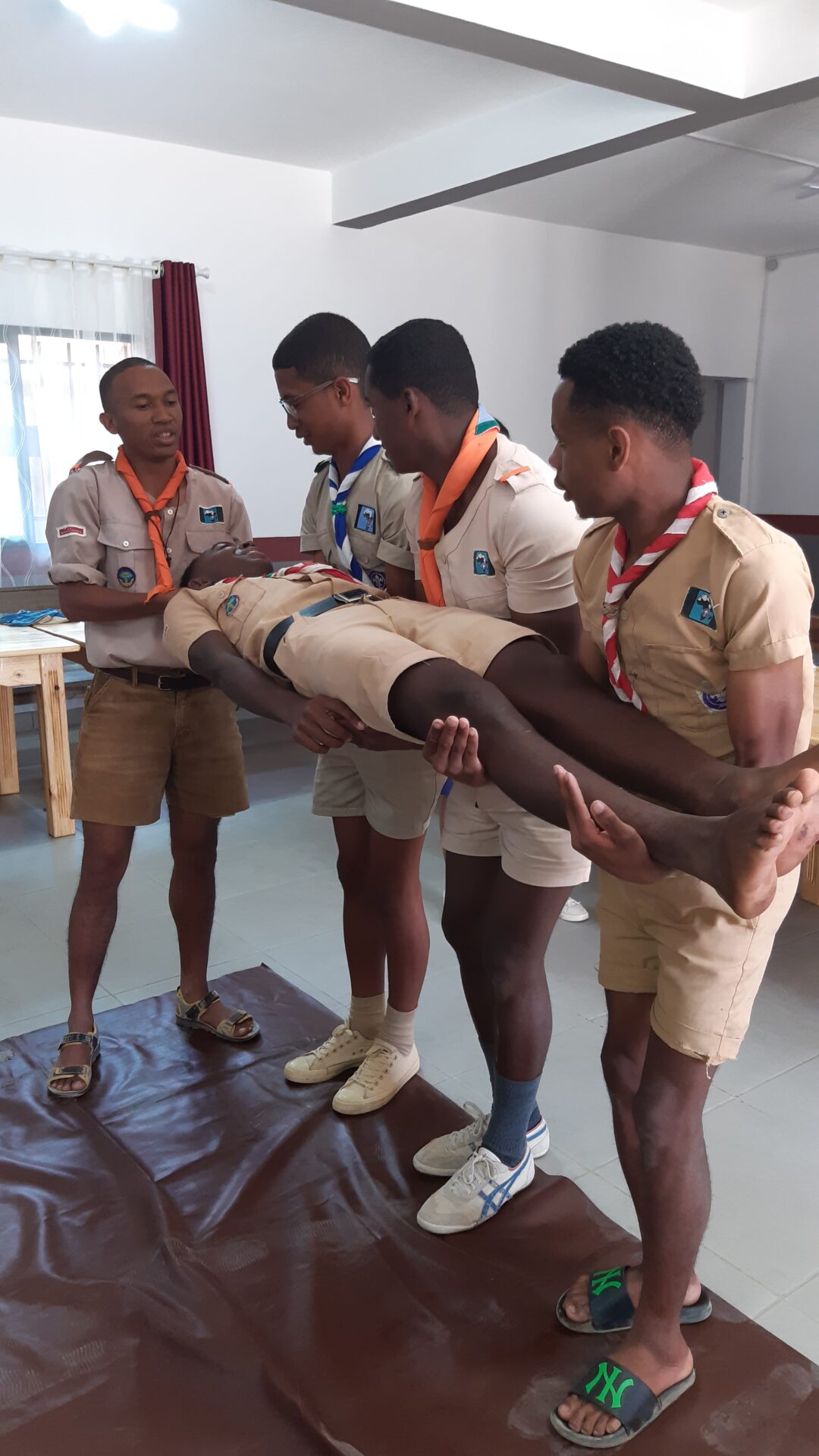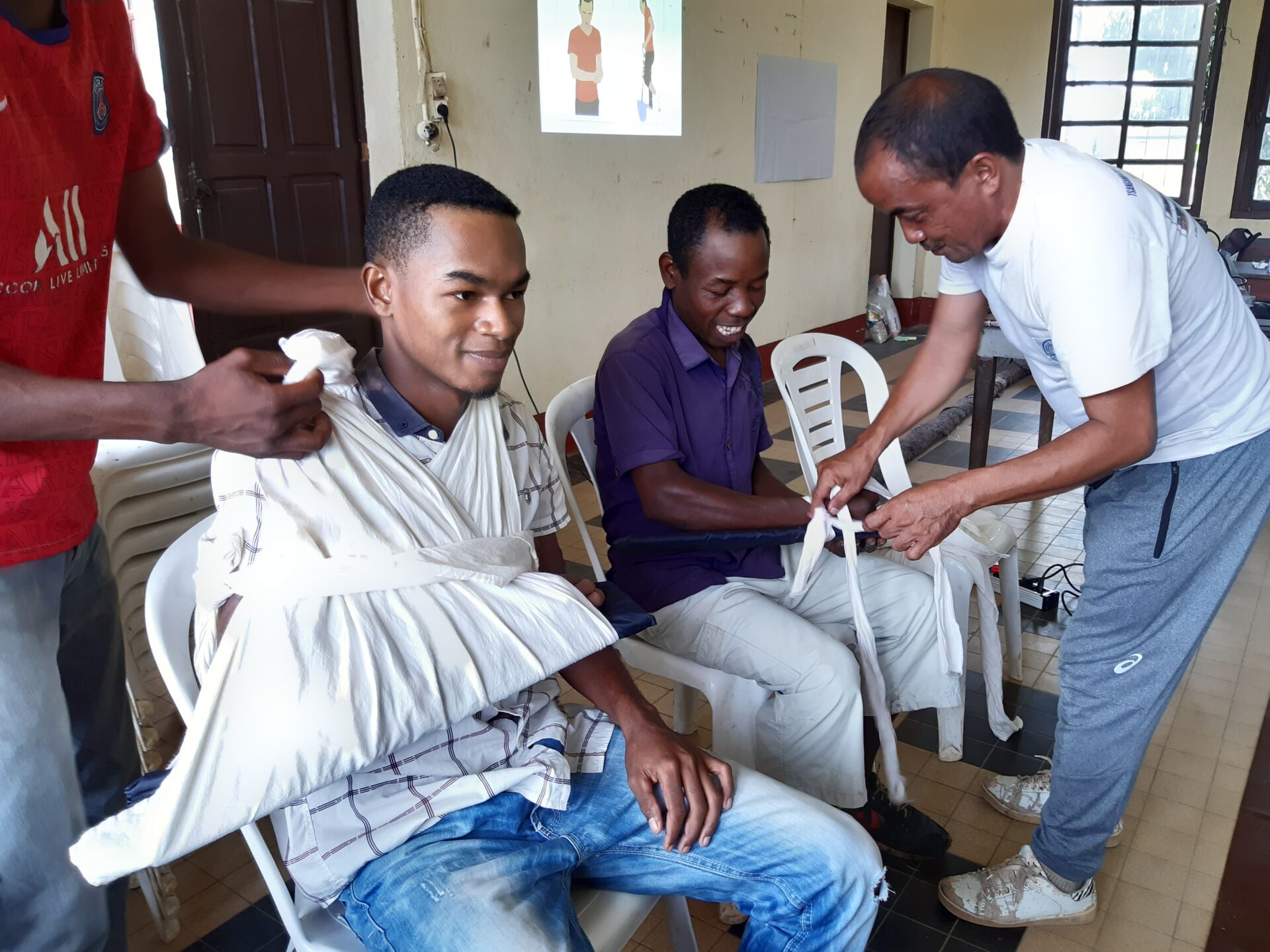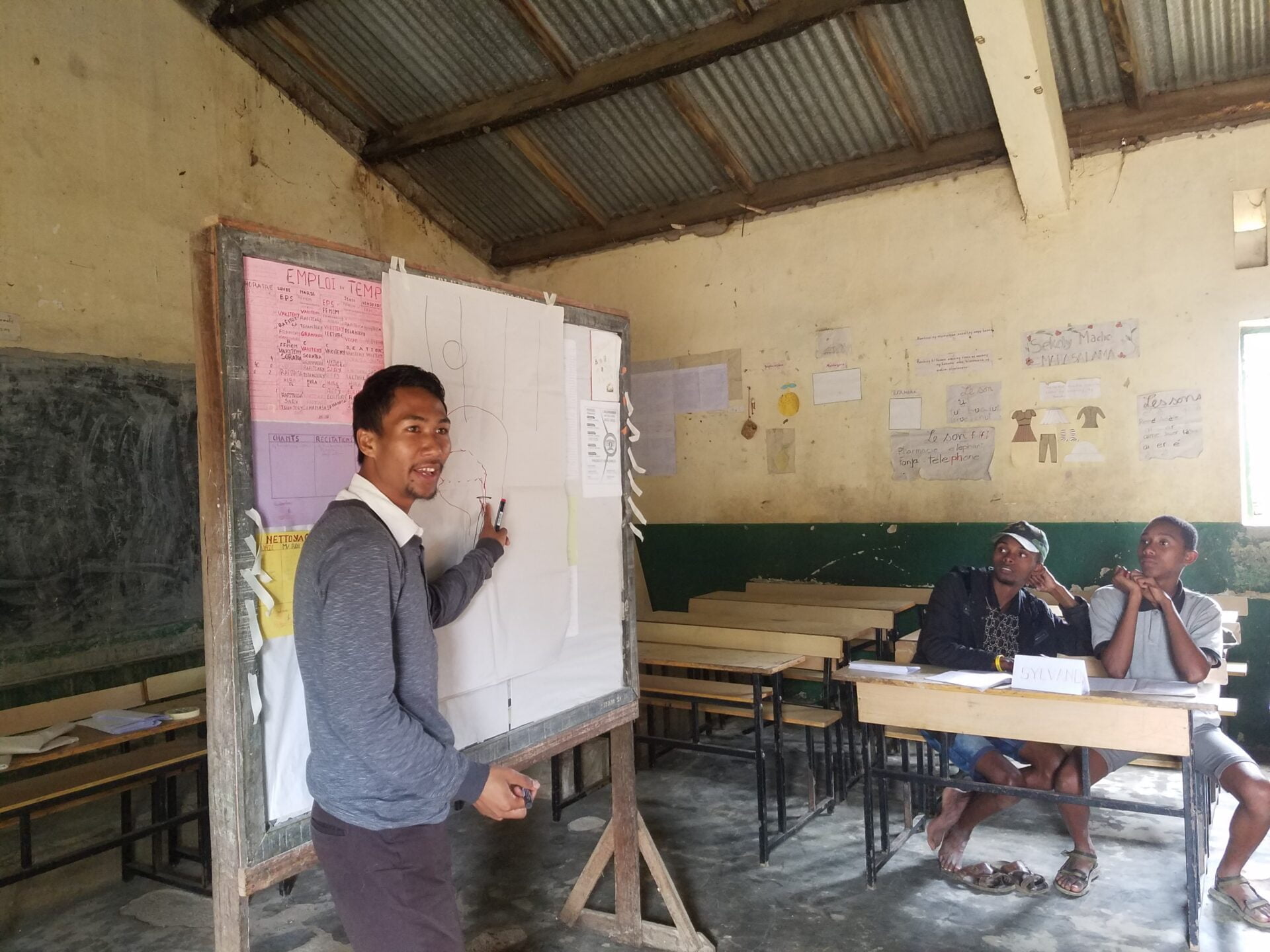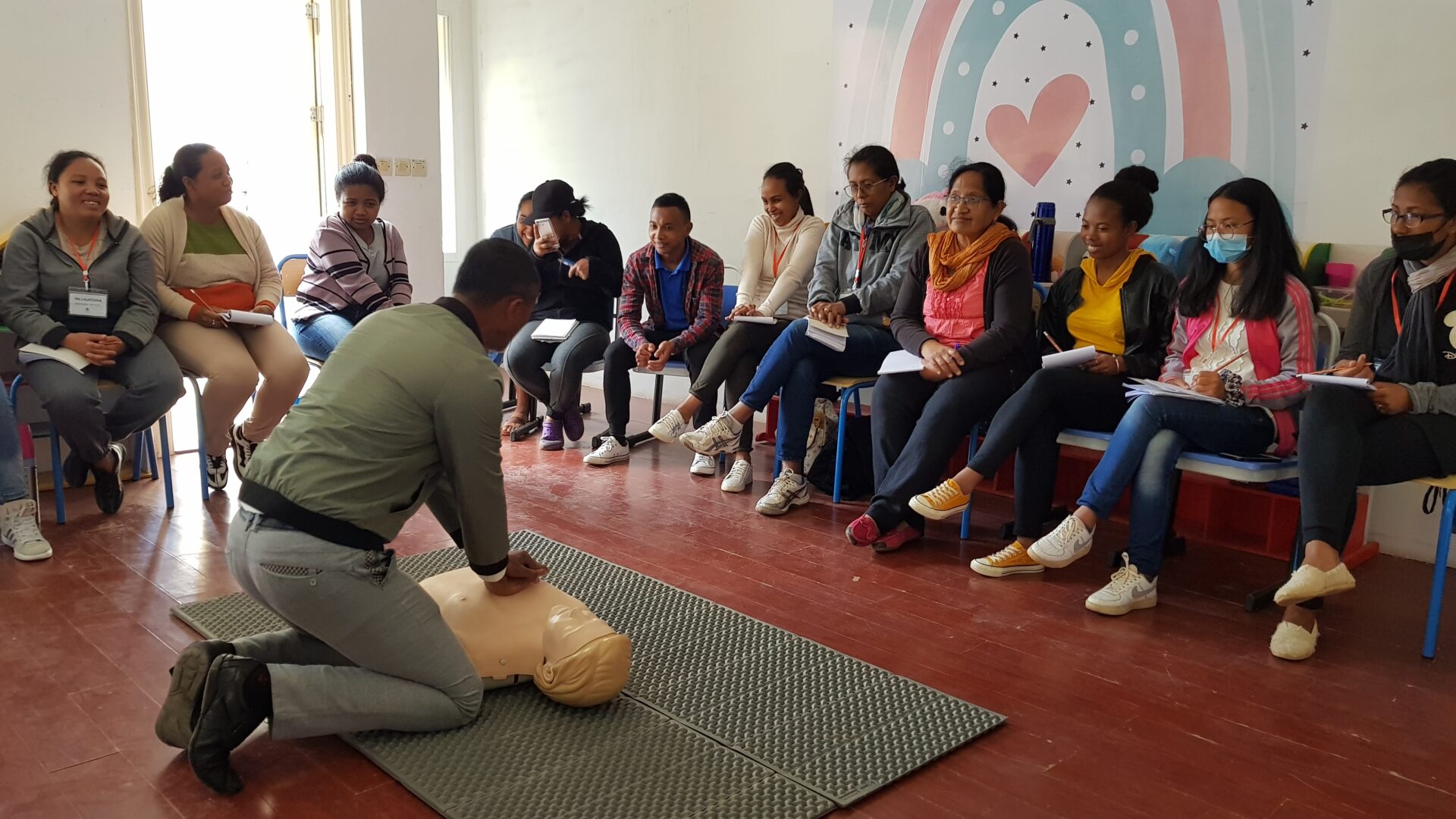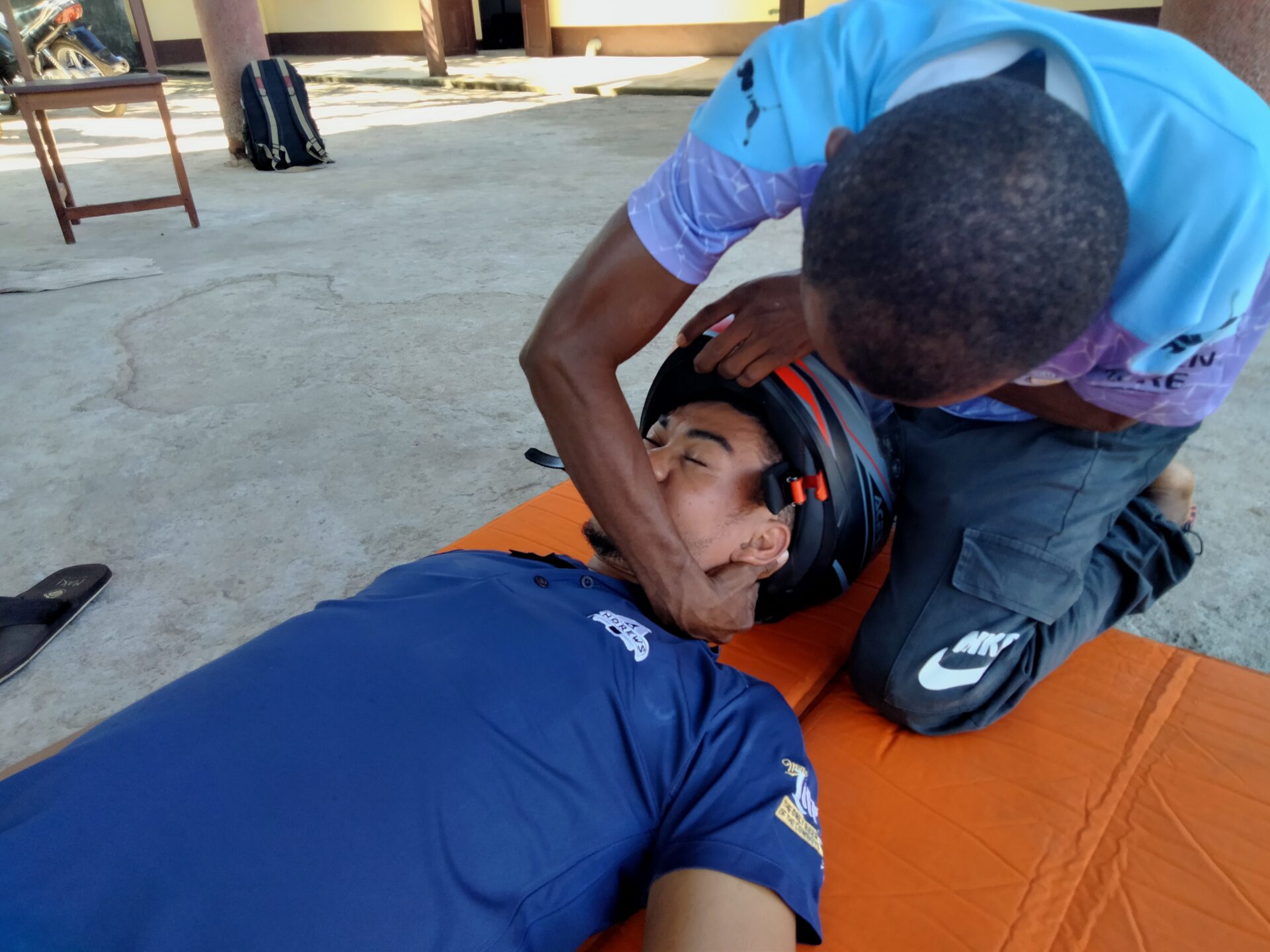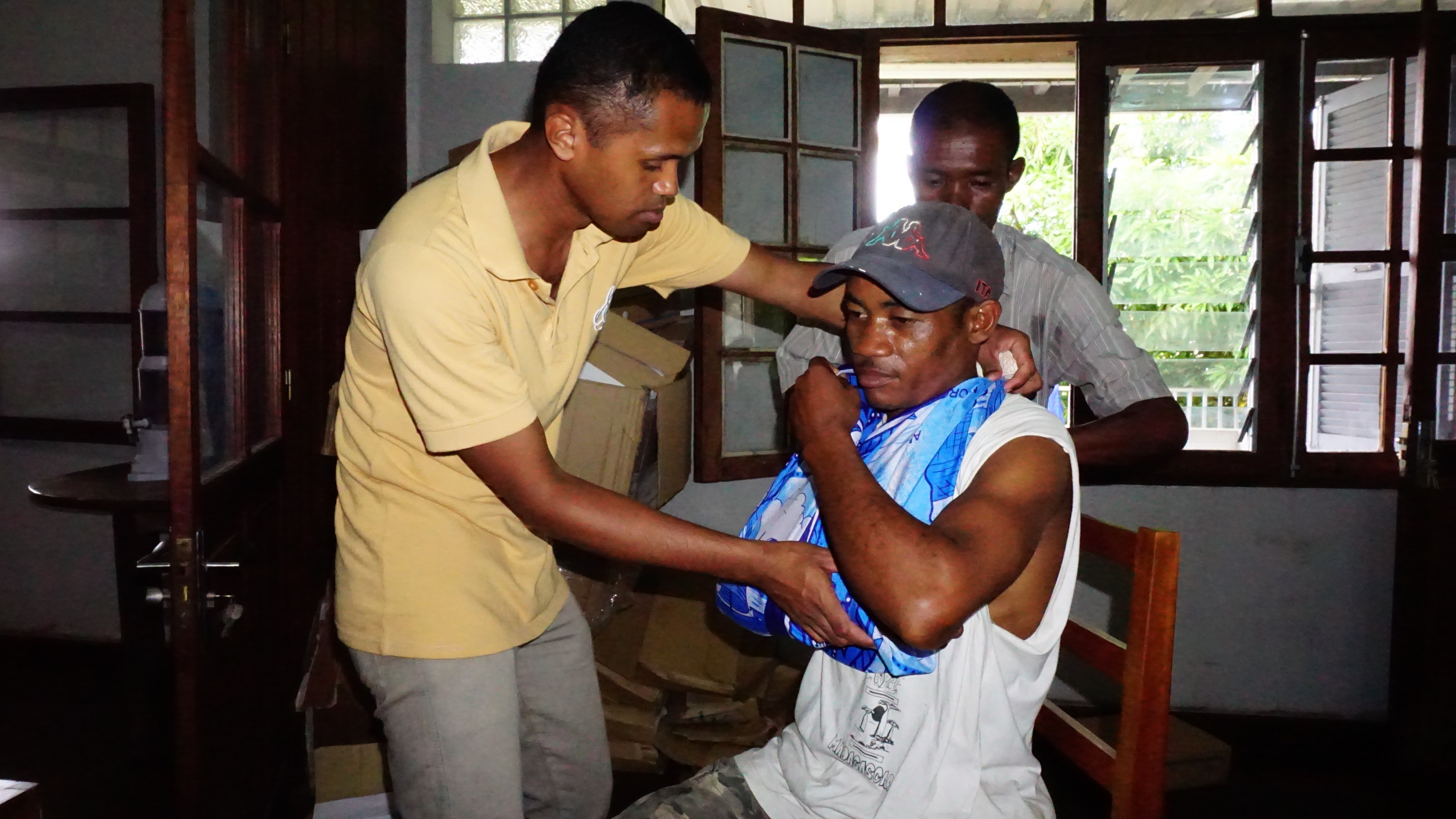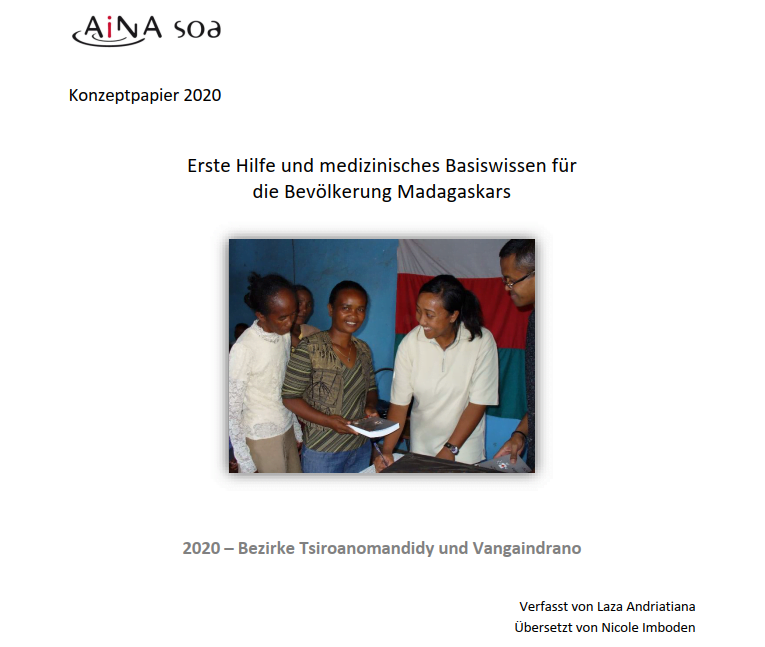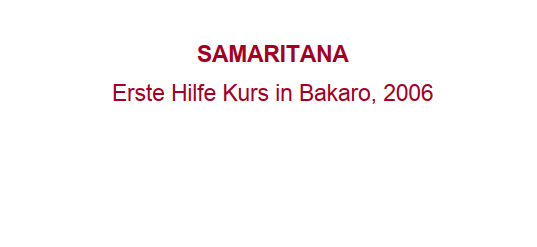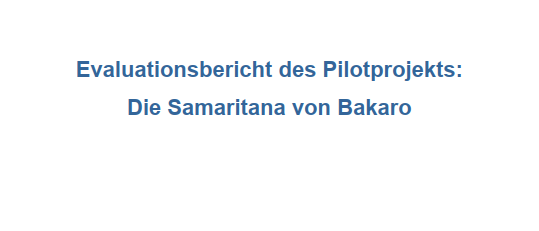First aid training is at the heart of AiNA soa’s work. Providing immediate assistance to an injured or ill person can save lives. There are many situations in which first aid measures are required. Therefore, we want to reach as many people as possible with our first aid trainings and promote help for self-help.
Our main target group are public institutions, companies and private organizations or associations. In 2023, especially along the two national roads RN7 and RN25. If you are interested in working with us, please feel free to contact us.
Thanks to the financial support of private individuals, companies, communities and churches, we have been active since the year 2013, so that we have already reached more than 11,700 Malagasy people. Thank you for continuing to stand with us so that we can reach more people to save precious lives and reduce unnecessary deaths in Madagascar.
Our trainings include many hands-on activities. The pictures below give an idea of the different teaching setting.
Milestones of the First Aid project
Click on the document titles below to learn more about the beginnings of the First Aid project.
In 2006, a pilot project was carried out with the aim of improving health care in the remote villages of Madagascar.
After three years the Samaritana project was evaluated. With the gained knowledge and experiences, a follow-up project was outlined in cooperation with Dr. Ratsirbazafi Marie Rolland from the Institut National de Santé Puplique et Communautaire.
Health care is intended to be improved at the base, in the villages, with trained samaritans. The aim of the project is to train medically trained people so that they can train the contact persons in the villages as Samaritans. The project started on 01.01.2013.
In different districts, doctors and nurses are trained in the first aid centres. At this point there is no guarantee that the medical staff will pass on their knowledge.
The aim is to motivate and strengthen individual responsibility towards the population. For this purpose, we will also advertise to those responsible and hopefully find a common commitment. The desired effect in the population can only be achieved by anchoring in local structures and national recognition. Without this knowledge transfer being transformed into a Malagasy institution, the benefits would only be temporary and not very sustainable.
If good acceptance is found in the government as well as in the population, a significant improvement in health care at the basic level can be expected, which can reduce suffering and early death.
